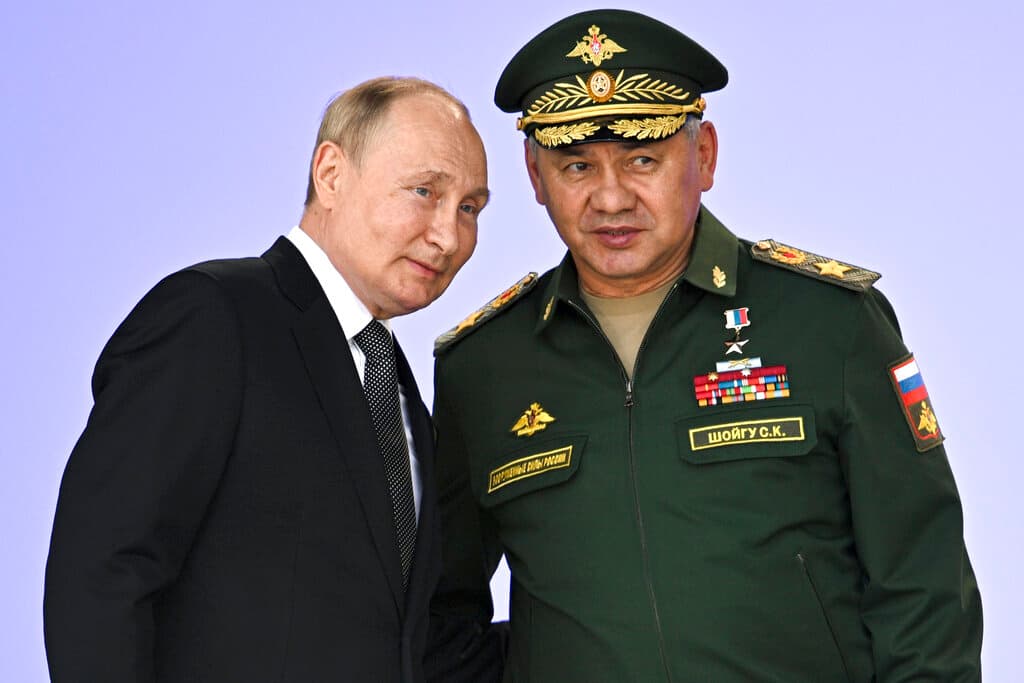Large-Scale Purge of Russian Armed Forces Under Way, Pro-Moscow Telegram Channel Reports
Some brass are said to be under house arrest, have been reassigned, or face criminal charges over aborted coup.

BERLIN — An ongoing and wide-scale purge of the Russian Armed Forces could leave Russia’s war machine rudderless at a critical time in the war with the Ukrainian forces who have launched their long-awaited counteroffensive.
Some of Russia’s top military brass are under house arrest, have been reassigned, face criminal prosecution, or have not been seen, thanks to Yevgeny Prigozhin and his Wagner group’s actions in Russia last week.
The information surfaced Wednesday morning in a report published by Rybar, a Telegram channel that reports on the war in Ukraine through a highly pro-Kremlin lens.
Russian officers are under the magnifying glass due to the “indecisiveness” they showed toward Wagner, inaction that the Kremlin sees as a sign of disloyalty to Moscow and President Putin’s regime.
The Sun could not independently confirm Rybar’s information, but the channel’s coverage of the war in Ukraine has produced a stream of high-fidelity battlefield information and is considered reliable.
“These cleansing measures concern not only the top brass but also ordinary soldiers and officers,” Rybar’s report said, adding that support of Wagner — or hesitancy and inaction — has become the “litmus test for the Russian Armed Forces.”
Four Russian air force crew members and officers face “criminal prosecution” for refusing to fire on Wagner during its thunder run toward Moscow because of the presence of civilian motorists interspersed in the convoy during its push north.
So, too, do the Russian border guards who refused to fire on the Wagner convoy — comprising hundreds of tanks and armored vehicles — crossing into Russia from Ukraine.
This is not the first time the Kremlin has cast doubt on its military leadership and purged its top officers. Purges in the leadup to World War II hamstrung the military and resulted in disastrous losses early in the war.
Sparked by Nazi Germany’s quiet rearmament during the 1930s and aided by Joseph Stalin’s acute paranoia, the Soviet Union accused dozens of army generals, navy admirals, and hundreds of other officers of disloyalty.
In what is known today as the Great Purge of 1937-39, the Soviet Union killed off some of its most experienced soldiers and sailors, gutting its officer corps and upending the human side of its war machine.
The Soviet Union emerged from the ashes of that war one of the world’s two superpowers, but it relied on an officer corps that lacked experience and overcame the Nazis through sheer force of numbers.
Although a winning tactic, it came at an extreme cost in human lives — and it is a stratagem that Russia is relying upon again today in Ukraine.
Russia’s chief of the general staff, Valeri Gerasimov, retains his post, according to Rybar’s information, but is no longer involved in the battlefield decision-making process.
In his stead, an officer from the Russian airborne forces, Colonel General Mikhail Teplinsky, is now in charge of running the war in Ukraine.
Another general, Sergey Surovikin, has not been seen since Sunday, when a video surfaced of him delivering a message apparently under duress.
General Surovikin briefly commanded all Russian forces in Ukraine and is considered one of Russia’s most competent commanders. He is respected for his battlefield prowess, but his amicable relationship with Mr. Prigozhin could explain his absence.
The New York Times reports that General Surovikin may have even helped Mr. Prigozhin plan and execute his short-lived escapade in Russia last week.
The Moscow Times, an anti-Kremlin Russian outlet, reports that he is under arrest, somewhat ironically, at Russia’s Lefortovo detention center. The prison is infamous as the site of torture and mass extrajudicial killings during the Great Purge.
There are signs that the Kremlin’s suspicion may be more than paranoia. Another general, Lieutenant General Vladimir Aleksyev, initially denounced Wagner’s activities but was seen shortly afterward in Rostov speaking with Mr. Prigozhin.
The ease with which Wagner took Rostov, the site of Russia’s southern military district command, and the fact Mr. Prigozin’s forces got within 120 miles of the Russian capital were extremely unexpected.
Outside aid — from disgruntled generals and officers — could have played a significant role and may, in fact, justify the Kremlin’s deep suspicions.
The inner turmoil now gripping the Russian armed forces comes at an opportune time for Ukraine in the country’s effort to drive Russia back across the border and out of Ukraine.
Coupled with Wagner’s occupation of Rostov and abortive march on Moscow, the military purge could casts doubt in the minds of Russia’s soldiers and civilians about their country’s war aims and political leadership.
“Regardless of how the General Staff will be cleaned up,” Rybar’s report says, “in some cases it is quite possible to be flexible and show decency.”

